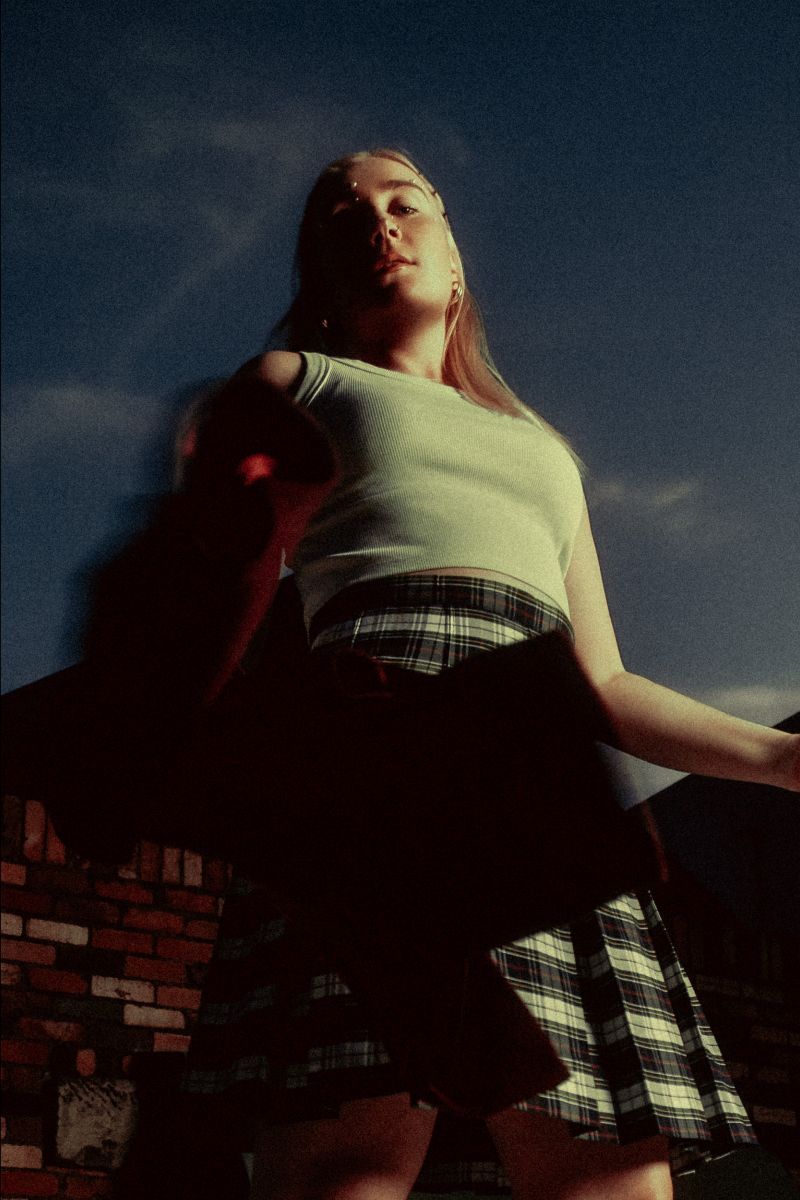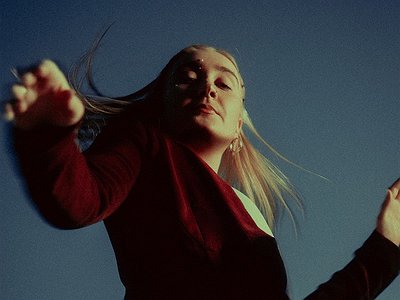Name: Asha Jefferies
Nationality: Australian
Occupation: Songwriter, vocalist
Current Release: Asha Jefferies's EGO RIDE is out now via Nettwerk. Listen to the album here, and order physical copies here.
If you enjoyed this Asha Jefferies interview and would like to stay up to date with her music and releases, visit her on Instagram, Soundcloud, Facebook, and tiktok.
Do you think that some of your earliest musical experiences planted a seed for your interest in your voice and singing? How and when did you start singing?
Sheepishly, I don’t really remember an early musical experience that didn’t involve singing and I’m not really sure how I started singing, either.
As I learnt how to talk, I sang. And I love that those things feel interconnected.
If you're also playing other instruments, how does the expressive potential of these compare to your own voice?
I don’t think there is another instrument that connects us like the voice. Using the voice as an instrument is a personal and vulnerable experience - you are the player and the instrument.
However, with a guitar for example you are just the player - so much can still be expressed, but not quite like the voice.
Singing is an integral part of all cultures, and traditions. Which of these do you draw from – and why?
I must draw from folk songs and nursery rhymes that I grew up with. My mum used to read me a book called I Love You Forever by Robert Munsch. There is a repeating phrase throughout the book:
‘I love you forever / I love you for always / as long as I’m living / my baby you’ll be.’
My mum used to sing this as a melody and it has always stuck with me.
I wrote a melody similar to it on a song called ‘Spinning’ on my debut album. I learnt from an early age that singing is a way of telling a story, telling a truth.
What were some of the main challenges in your development as a singer/vocalist? Which practices, exercises, or experiences were most helpful in reaching your goals – were there also “harmful” ones?
My main challenge as a singer, I think, has been learning how to sing authentically. As a young person, I learnt to sing by impersonating voices like … Hilary Duff, Missy Higgins, Regina Spektor, Julia Stone. I studied their tones, vocal inflections, and accents.
Over time, I’ve had to learn how to place my personality and self into my voice. The intriguing thing is I’ve noticed that the voice will keep on changing as you grow and know yourself more.
What are the things you hear in a voice when listening to a vocalist? What moves you in the voices of other singers?
I think I’m listening to what the vocalist is saying most of the time. Not lyrically, but what they are saying through the tone and emotion they bring into their voice - what are they communicating? How are they sharing themselves?
The times I have been moved by a voice the most is when it can shapeshift from being pure and vulnerable to powerful and rough effortlessly in seconds.
How would you describe the physical sensation of singing? [Where do you feel the voice, do you have a visual sensation/representation, is there a sense of release or tension etc …]
Singing feels like the connection of breath and tone forming a union together.
I feel the voice at the roof of my mouth, however, I try as much as I can to make singing a whole body experience. Focusing on the sound coming from the centre of my body, right below my rib cage.
I’ve read that if you sing from the centre of your body, you can hear and feel the difference - it means the singer is fully in it and committing to the act of the song.
What kind of musical settings and situations do you think are ideal for your own voice?
Intimate and echoing spaces are the most satisfying places to sing in, like churches, tunnels, hallways, even bathrooms!
I would sit in the bathtub (water-less) with my guitar as a teenager and write songs because I liked the way it sounded.
We have a speaking voice and a singing voice. Do these feel like they are natural extensions of each other, ends on a spectrum or different in kind?
I think the speaking voice and the singing voice are connected but mysteriously, very different from each other.
My speaking voice is naturally quite low and my singing voice is naturally quite high - I don’t know why this is, other than knowing that our chest registers are the primary register we speak in.
When you're writing song lyrics, do you sense or see a connection between your voice and the text? Does it need to feel and sound “good” or “right” to sing certain words? What's your perspective in this regard of singing someone else's songs versus your own?
There are definitely words that I use in my own songs regularly because I enjoy singing them, such as ‘body’, ‘stranger’, ‘chaos’ and ‘dancefloor’. I’m really not sure why I intuitively keep picking these words to put in songs, it just feels good and relates to experiences in my life!
I wonder if the most universally popular songs in the world are songs that feel and sound “good” for everyone to sing. 
Asha Jefferies Interview Image (c) the artist
Strain is a particularly serious issue for many vocalists. How do you take care of your voice? Are the recipes or techniques to get a damaged voice back in shape?
Losing or dramatically straining my voice in the past has been a very difficult experience, physically and emotionally. Losing my voice can feel like a loss of control or power. It’s very interesting to observe those feelings when they come up.
I’m hyper-aware of looking after my voice and throat now, making sure I’m very hydrated a few hours before vocal activities (like rehearsals, performances) and also knowing when to take a break when the voice is tired.
How has technology, such as autotune or effect processing, impacted singing? Has it been a concrete influence on your own approach?
I think autotune is a magnificent tool for expanding and exploring creative practices within melody writing. Just thinking about the unimaginable melodies written because of autotune is really wonderful.
I’ve never worked with autotune much as I like the nature of raw and intimate vocals and how vocal imperfections tell a story within a song.
For recording engineers, the human voice remains a tricky element to capture. What, from your perspective, makes voices sound great on record and in a live setting?
I think because the human voice is such a naturally raw and personal tool, it can be the trickiest part of recording a song.
But I think naturally raw and personal vocal takes are what make a good recording. I would rather pick the vocal take drenched in feeling with technical “flaws” than a perfect pitch take that doesn’t convey emotion to the listener.
Motherese may have been the origin of music, and singing is possibly the earliest form of musical expression, and culture in general. How connected is the human voice to your own sense of wellbeing, your creativity, and society as a whole?
My voice is whole-heartedly connected to my wellbeing, creativity and how I share myself with the world.
Singing is such a unique tool to not only share your story but express who you are in the purest form. It is how I celebrate, how I mourn and everything in between.
I've been fascinated by pure vocal recordings for a long time. Do you have some recommendations in this direction?
A few years ago, Noah Dillon, an Australian artist from WA reached out to me to sing on his song ‘Knievel Daredevil’. I love the meaning behind the song as well as his raw vocal takes that are doubled and layered across the song.
He shares in the song
‘I wanna sing all my songs slightly out of tune / the type of singing where you know all my words are true’.
The words feel very true.





